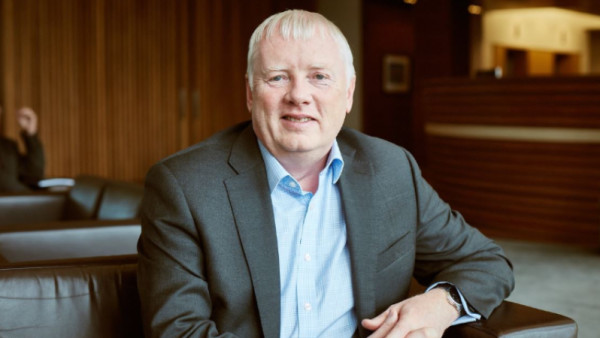

Few will have fond memories of 2022 despite having a positive start with a post-pandemic return to some form of normality, according to Aegon pensions director Steven Cameron.
Speaking to FTAdviser, Cameron said Russia’s war in Ukraine meant the year was anything but normal.
“With signs of growing inflation already there, not helped by post-pandemic supply-chain blockages, the war led to rocketing energy prices and further upward pressure on food costs,” he said.
“The government’s agenda clearly had to move on from building Britain back better.”
Cameron explained that the history books will remember 2022 for the passing of Queen Elizabeth II.
There may also be a chapter on the three prime ministers, four chancellors and three Budgets., he said.
“First, the Conservative Party lost confidence in Boris, and installed Liz Truss as a ‘go for growth’ prime minister.
“The subsequent mini-Budget led to worldwide markets losing confidence in the UK’s financial disciplines, with sterling plummeting and gilt yields rocketing, forcing the Bank of England to intervene to stop leveraged liability driven investments, used by certain defined benefit pension schemes, causing a ‘pension crisis’.
“Cue another leadership contest and Rishi Sunak, the previous runner up, entering No 10.”
However, alongside all this, interest base rates which had started the year at 0.25 per cent reached 3 per cent in November, causing real pain for mortgage holders particularly if their fixed term deals were coming to an end.
Budget after Budget
After a multitude of U-turns on "mini" Budget measures, chancellor Jeremy Hunt’s Autumn Budget “was studiously surprise free” to avoid spooking markets, according to Cameron.
“The ‘bad news’ was very heavily trailed, but the key aim, quite rightly, was to regain confidence and stability, including getting inflation back under control.”
Cameron explained that in order to help fund the UK’s financial black hole, taxing by stealth will continue in many areas for an extra two years.
Capital gains tax allowances are also “being halved and halved again”, he said.
“And the new deal on social care funding was kicked down the road for a further two years, taking it beyond the next general election, scuppering hopes of planning ahead with confidence for care costs.”
Yet he argued that state pensioners did “breathe a sigh of relief” when the debate on whether to honour the triple lock ended in their favour with a double digit 10.1 per cent increase set for April.
One theme which stayed consistent between Budgets and beyond was the government’s desire to grow the economy by attracting more money into ‘productive finance’, private equity and illiquid investments.
Defined contribution pensions, with their billions under management, are recognised as having a currently untapped investment super-power, he said.
“A drive for greater scale through DC scheme consolidation, new trustee disclosure requirements and excluding performance fees from the auto-enrolment charge cap are all aimed at boosting illiquid investments.
“While no firm has yet used the FCA’s authorisation regime for long term asset funds, that didn’t stop the FCA consulting on making them available to retail investors.”
Regulatory focus
Elsewhere at the FCA, 2022 was dominated by the new consumer duty, with final rules and extended guidance published in July.
Earlier this year, the regulator announced a delay of three months in the implementation however Cameron said this was quickly replaced by the “sting in the tail” earlier deadline of October for implementation plans.
Elsewhere, pension dashboards will continue their “slow but sure journey” to improving pension engagement.
“All in all, 2022 was not a year many will want to remember,” he said. “But there were some positives. It marked 10 years of auto-enrolment which, while there is more to do, has transformed workplace pensions.
“For me, engaging with many advisers as we plan how to collaborate on the new consumer duty was another highlight.”
Cameron said the prospects for the new year are heavily influenced by 2022.
“I expect in early 2023 to gain a better understanding of what’s on the priority list of the new pensions minister, Laura Trott.
“I do hope after significant progress in 2022, there will be no weakening of resolve to finally get pension dashboards up and running.”
Cameron said he would also like to see a roadmap for implementing the 2017 review of auto-enrolment albeit allowing for the cost of living crisis.
“A tailored equivalent for auto-enrolment for the self-employed is also long overdue,” he added.
“And I expect in 2023 to see progress in extending the full range of pension freedoms to members of trust-based schemes, hopefully learning from FCA experiences.
“We’re promised a further consultation extending collective defined contribution schemes to multiple employers and perhaps more interestingly to a decumulation only proposition.”
Cameron's “top ask” of the Treasury would be to pave the way through the financial services and markets bill for regulated firms to be able to offer a more personalised form of guidance to complement the current strengths of the advice market.
“This should be considered alongside ‘core investment advice’ proposals supporting customers investing excess cash in stocks and shares Isas.”
He added: “We face many headwinds as we enter 2023. But as always, in times of change and challenge, advisers offer more value than ever in helping navigate complexities and providing much needed reassurance.”
sonia.rach@ft.com
What do you think about the issues raised by this story? Email us on FTAletters@ft.com to let us know



